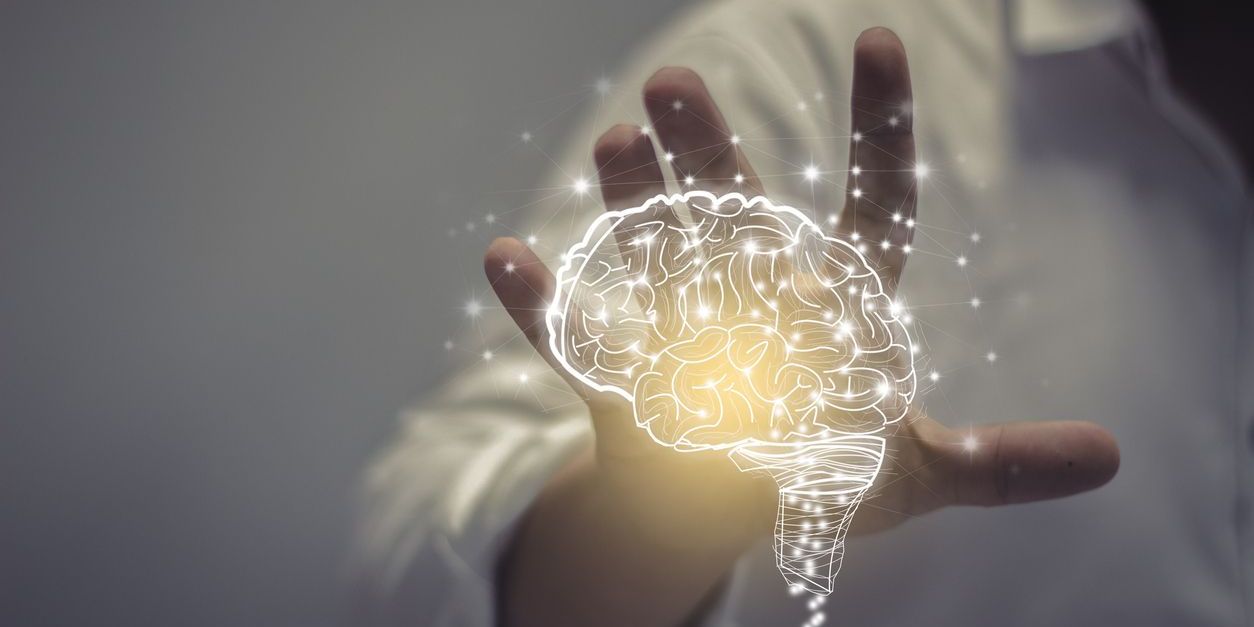With the release of ChatGPT, DALL-E, Stable Diffusion, and other popular AI-based resources, the public discussion of artificial intelligence (AI) in the 2020s has focused primarily on the incorporation of this new technology into areas such as writing, music, and visual arts.
While these are significant topics that merit continued assessment, they’re far from the only ways that AI may transform our world. For example, research indicates that AI and machine learning (ML) may someday play important roles in the diagnosis and treatment of many medical concerns and mental health disorders.
In this article, we’ll discuss an intriguing component of the AI-healthcare alliance: the ability of artificial intelligence to help clinicians diagnose patients with schizophrenia.
Diagnostic Criteria for Schizophrenia
As established in the Diagnostic and Statistical Manual of Mental Disorders, Volume 5 (DSM-5), a person must experience at least two of the following symptoms over a period of at least a month to meet the criteria for schizophrenia:
- Delusions: Holding and refusing to abandon beliefs that have no basis in reality or are easily disproven.
- Hallucinations: Perceiving stimuli (most commonly auditory or visual) that don’t exist.
- Disorganized speech: Speaking incoherently and/or with no order or logic.
- Grossly disorganized behavior: Acting in a manner far outside cultural norms or being virtually nonresponsive.
- Catatonic behavior: Being virtually nonresponsive to external stimuli.
- Negative symptoms: Lacking facial expressions, speaking in monotone, showing little interest in interacting with others.
The DSM-5 also requires that at least one of the two symptoms a person exhibits must be either delusions, hallucinations, or disorganized speech.
Why Diagnosing Schizophrenia is Challenging
Given the potential intensity and disruptiveness of symptoms associated with schizophrenia, it may seem fairly simple for a qualified professional to diagnose a person with schizophrenia.
Unfortunately, it’s not.
While the symptoms we list above are obvious signs some type of mental or behavioral health problem exists, determining the nature and cause of the problem – i.e. making an accurate diagnosis – can be a challenge.
The following factors complicate the diagnostic process:
- Certain recreational drugs and some prescription medications can cause people to exhibit signs that resemble symptoms of schizophrenia.
- Other mental health disorders may cause psychotic episodes that resemble schizophrenia.
- Autism spectrum disorder and certain communication disorders may include symptoms similar to the disorganized speech, negative affect, and disorganized behavior associated with schizophrenia.
- Various cultural issues may contribute to underreporting/underdiagnosing schizophrenia and similar diosrders.
How AI Can Help Diagnose Schizophrenia
In October 2023, the journal Proceedings of the National Academy of Sciences (PNAS) published a study on the use of AI language models to help clinicians diagnose schizophrenia. This study used research conducted by experts from the University College of London (UCL) Queen Square Institute of Neurology.
Features of this study, as described in a UCL News report, included:
- 52 participants: 26 with schizophrenia, 26 without
- All participants completed two verbal fluency tasks that lasted five minutes each:
- One task involved listing as many animals as possible.
- The other involved listing words that started with the letter “p.”
- Participants completed a magnetoencephalography (MEG) scan that involved a separate learning task.
- Researchers used an AI language model to determine the predictability of the words that the participants listed.
- Responses from the schizophrenia group were less predictable than response from the control group.
- Predictability scores were lowest among participants with the most severe symptoms.
Matthew Nour, a researcher and lead author of the study, describes the findings this way:
“Until very recently, the automatic analysis of language has been out of reach of doctors and scientists. However, with the advent of artificial intelligence (AI) language models such as ChatGPT, this situation is changing. By combining state-of-the-art AI language models and brain scanning technology, we are beginning to uncover how meaning is constructed in the brain, and how this might go awry in psychiatric disorders.”
Previous Research on AI and Schizophrenia
While the UCL study garnered considerable attention within the mental health field, it wasn’t the first research to focus on artificial intelligence and schizophrenia.
In June 2021, the International Journal of Environmental Research and Public Health published a survey of prior efforts to employ AI and machine learning (ML) to identify schizophrenia. This survey, led by Joel Weijia Lai of Singapore University of Technology and Design, included a review of 164 articles and papers published between 1999-2020.
The primary difference between the UCL study and the research efforts on this survey was the incorporation of language assessments. Instead, they used AI and ML to analyze various magnetic resonance imaging (MRI) scans, positron emission tomography (PET) scans, electroencephalograms (EEGs), and similar tests.
Here’s how those researchers describe their findings:
“The majority of papers reviewed focus on detection, with greater emphasis on using MRI data. There is significant scope to explore whether ML can have similar accuracy in the detection of [schizophrenia] through the use of other medical data. Currently, there are few public datasets available for independent researchers to apply novel AI and ML techniques for better machine classification and detection.”
Prior Studies Involving Speech and Psychosis
The lack of language-based research doesn’t mean experts ignored speech patterns when building models to help diagnose schizophrenia and other psychotic disorders.
A team led by Dr. Cheryl Mary Corcoran of the Icahn School of Medicine at Mount Sinai addressed such efforts in a June 2020 review article. That review included information about several studies involving natural language processing (NLP) to identify people who at risk for schizophrenia-related psychosis:
- A longitudinal study of children whose parents had schizophrenia or another affective disorder predicted which young people would receive a schizophrenia diagnosis within the next 10 years with 94% accuracy.
- A model that focused on “illogical thought content and poverty of content, and errors in use of pronouns or comparatives to refer to individuals or objects previously mentioned” predicted schizophrenia 71% of the time – about twice the success rate of clinical ratings.
- A small study involving an algorithm that focused on differences in various semantic and syntactic features such as coherence, phrase length, and frequency of use of various parts of speech identified samples from people with schizophrenia with 70% accuracy.
Corcoran and her team acknowledged that considerable work remains in the effort to use language models to predict risk of schizophrenia and other psychotic disorders.
For example, they noted that current models do not account for nonverbal elements of communication, such as facial expressiveness, lack of facial expressiveness, pauses, gestures, and eye contact. However, they also noted that using technology to develop even rudimentary models adds a level of consistency previously been absent from language-based mental health assessment tools.
Here’s their assessment:
“However imperfect the algorithms discussed in this review may be at capturing our intuitions of speech coherence and complexity, they are designed to be consistently reproducible in different experimental designs by different researchers. In this sense, NLP can contribute to a common understanding of language in the context of mental health and align psychiatry with modern epistemological notions of objectivity as consensual agreement.”
What’s Next?
With AI and ML now capable of performing tasks relegated to the realm of science fiction just a few short years ago, it’s hard to predict what the future may hold in terms of mental health applications. Will mental health providers use AI to diagnose schizophrenia any time soon?
The following as-yet-unanswerable questions indicate what the alliance between AI and mental health may look like in years to come is hard to predict:
- What advances will AI make in the near future?
- Will technology continue to improve at the rapid rate seen in the last few years?
- Will it expand even faster as it builds on recent developments, or will progress slow?
- How will governments and regulatory organizations respond to the continued integration of AI into research and treatment?
- What financial implications accompany AI-assisted mental health treatment?
- Will services be affordable?
- Will insurers pay?
- How will AI impact the relationship between clinicians and their patients?
- Will AI enhance or impair the treatment alliance, i.e. the connection between provider and patient?
AI has great potential as a tool to help providers diagnose schizophrenia and other mental health disorders. How effectively mental health experts use that tool – and how patients respond to it – will likely determine the limits of that potential.


 Gianna Melendez
Gianna Melendez Jodie Dahl, CpHT
Jodie Dahl, CpHT